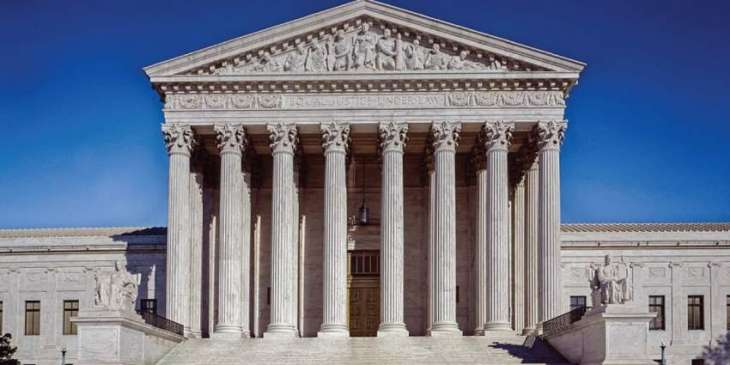The US Supreme Court will hear two cases questioning the legal protections afforded to big tech companies under federal law for the content they host, according to an order list released by the high court on Monday
WASHINGTON (Pakistan Point News / Sputnik - 03rd October, 2022) The US Supreme Court will hear two cases questioning the legal protections afforded to big tech companies under federal law for the content they host, according to an order list released by the high court on Monday.
The Supreme Court will hear arguments in two cases - Gonzalez v. Google and Twitter v. Taamneh - that could challenge the legal protections given to the tech companies under Section 230 of the Communications Decency Act.
The Gonzalez v. Google case seeks to clarify whether Section 230 immunizes companies like Google from responsibility for targeted recommendations of information, or only limits liability when engaged in traditional editorial functions.
Reynaldo Gonzalez began pursuing the case after his daughter was killed in an attack carried out by the Islamic State terror group (banned in Russia). Gonzalez alleges that Google aided the terror group by hosting its recruitment videos and recommending its content algorithmically.
Section 230 provides protections to interactive computer services who share material from other information content providers. Federal law prevents internet sites from being treated as a "publisher or speaker" of shared content.
The case of Twitter v. Taamneh similarly seeks to clarify the tech companies' liability for hosting content that could contribute to acts of terrorism and land them in violation of the Anti-Terrorism Act (ATA).
The Taamneh family was the plaintiff in a case against Twitter and other tech companies alleging responsibility for propagating Islamic State content, which they claim contributed to the death of their relative in a 2017 terror attack in Turkey.
The Ninth Circuit Court of Appeals initially issued rulings on the two cases in a single opinion, holding that Gonzalez's claims were generally barred under Section 230, but that companies could be held liable for aiding and abetting international terrorism under the ATA as suggested by Taamneh.
Twitter then launched a case as a plaintiff and requested review of the appellate rulings by the US Supreme Court. The case specifically questions whether services like Twitter provide substantial assistance to terror groups under the ATA by not taking more aggressive measures to prevent their use by such organizations.
Reforms to Section 230 of the Communications Decency Act have been discussed by US lawmakers and administration officials for years, including by President Joe Biden, who has supported reforms to promote accountability, according to former White House Press Secretary Jen Psaki.
Former US President Donald Trump also supported changes to the law, saying in November 2020 that Section 230 must be immediately terminated.
Critics of Section 230 say the law allows tech companies to claim liability protection both, as platforms not responsible for their content and as publishers allowed to censor content.




